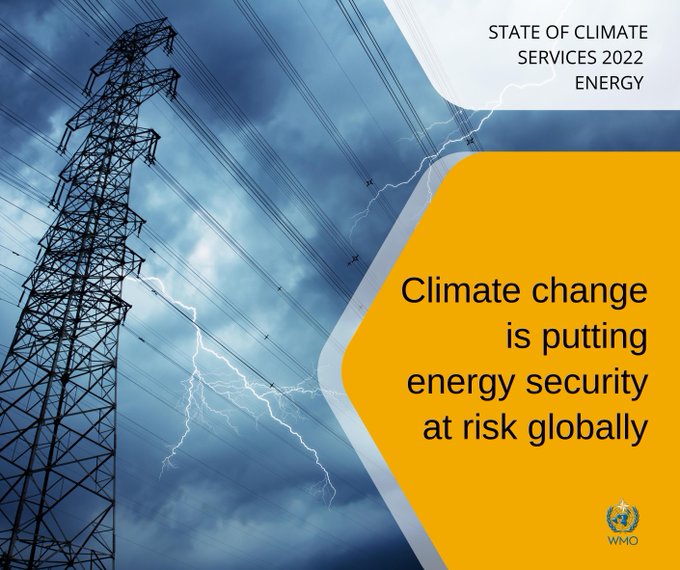
$30 trln in additional investments required to achieve net zero in 8 hard-to-abate sectors
The Net Zero Industry Tracker 2024 estimates that $30 trillion in additional capital will be required across ...

The World Meteorological Organization (WMO) said in its new report – 2022 State of Climate Services – that Africa is home to around 60 percent of the most solar rich environments in the world, and African countries have an opportunity to capitalize on that untapped potential and be major players in the energy market moving forward.
Africa is already facing severe effects from climate change, including massive droughts. To meet its energy and climate goals, in addition to a huge increase in adaptation, energy investment must double this decade, said the WMO.
An annual infusion of $25 billion, equivalent to one percent of all global energy investment, is now required, said the report.
Climate change directly affects fuel supply, energy production, and the physical resilience of current and future energy infrastructure.
Heatwaves and droughts are already putting existing energy production under stress, making it even more important to reduce fossil fuel emissions and illuminating the impact of more frequent and intense extreme weather, water and climate events.
The 2022 State of Climate Services, which includes inputs from 26 different organizations, zeroes in on energy – a key factor for realizing international agreements on sustainable development, climate change, and planet health.
Access to reliable weather, water and climate information and services, will be increasingly important to strengthen the resilience of energy infrastructure and meet rising demand, which has jumped 30 percent over the past ten years.
The report said that in order to limit the global temperature rise which is undermining energy security, electricity tapped from clean energy sources must double over the next eight years.
With the energy sector responsible for around 75 percent of global greenhouse gas emissions, WMO chief Petteri Taalas said that switching to cleaner energy generation and improving energy efficiency – is “vital if we are to thrive in the 21st century”.
“Net zero by 2050 is the aim. But we will only get there if we double the supply of low-emissions electricity within the next eight years”.
“Time is not on our side, and our climate is changing before our eyes”, said the WMO chief calling for “a complete transformation of the global energy system”.
The Net Zero Industry Tracker 2024 estimates that $30 trillion in additional capital will be required across ...
Egypt is gearing up for the 2025 Human Development Report, and debt swap initiatives, all ...
The European Bank for Reconstruction and Development (EBRD), the United Kingdom’s High-Impact Partnership on Climate ...


اترك تعليقا